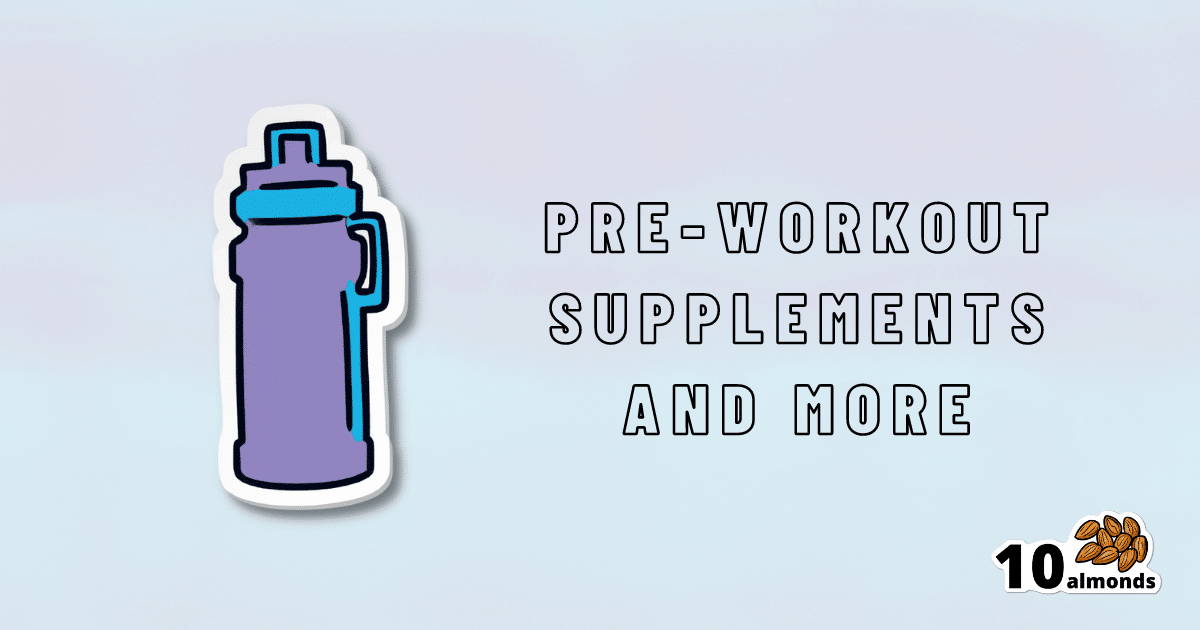What To Eat, Take, And Do Before A Workout
What to eat, take, and do before a workout. Learn about pre-workout nutrition, hydration, and supplements like caffeine and BCAAs. Check out some recommended products and further reading.

What to eat, take, and do before a workout
We’ve previously written about how to recover quickly after a workout:
Overdone It? How To Speed Up Recovery After Exercise
Today we’ll look at the flipside: how to prepare for exercise.
Pre-workout nutrition
As per what we wrote (and referenced) above, a good dictum is “protein whenever; carbs after”. See also:
Pre- versus post-exercise protein intake has similar effects on muscular adaptations
It’s recommended to have a light, balanced meal a few hours before exercising, though there are nuances:
International society of sports nutrition position stand: nutrient timing
Hydration
You will not perform well unless you are well-hydrated:
Influence of Dehydration on Intermittent Sprint Performance
However, you also don’t want to just be sloshing around when exercising because you took care to get in your two litres before hitting the gym.
For this reason, quality can be more important than quantity, and sodium and other electrolytes can be important and useful, but will not be so for everyone in all circumstances.
Here’s what we wrote previously about that:
Are Electrolyte Supplements Worth It?
Pre-workout supplements
We previously wrote about the use of creatine specifically:
Creatine: Very Different For Young & Old People
Caffeine is also a surprisingly effective pre-workout supplement:
International society of sports nutrition position stand: caffeine and exercise performance
Depending on the rate at which you metabolize caffeine (there are genes for this), the effects will come/go earlier/later, but as a general rule of thumb, caffeine should work within about 20 minutes, and will peak in effect 1–2 hours after consumption:
Nutrition Supplements to Stimulate Lipolysis: A Review in Relation to Endurance Exercise Capacity
Branched Chain Amino Acids, or BCAAs, are commonly enjoyed as pre-workout supplement to help reduce creatine kinase and muscle soreness, but won’t accelerate recovery:
…but will help boost muscle-growth (or maintenance, depending on your exercise and diet) in the long run:
Where can I get those?
We don’t sell them, but here’s an example product on Amazon, for your convenience 😎
There are also many multi-nutrient pre-workout supplements on the market (like the secondary product offered with the BCAA above). We’d need a lot more room to go into all of those (maybe we’ll include some in our Monday Research Review editions), but meanwhile, here’s some further reading:
The 11 Best Pre-Workout Supplements According to a Dietitian
(it’s more of a “we ranked these commercial products” article than a science article, but it’s a good starting place for understanding about what’s on offer)
Enjoy!
Share This Post
Learn To Grow
Sign up for weekly gardening tips, product reviews and discounts.




